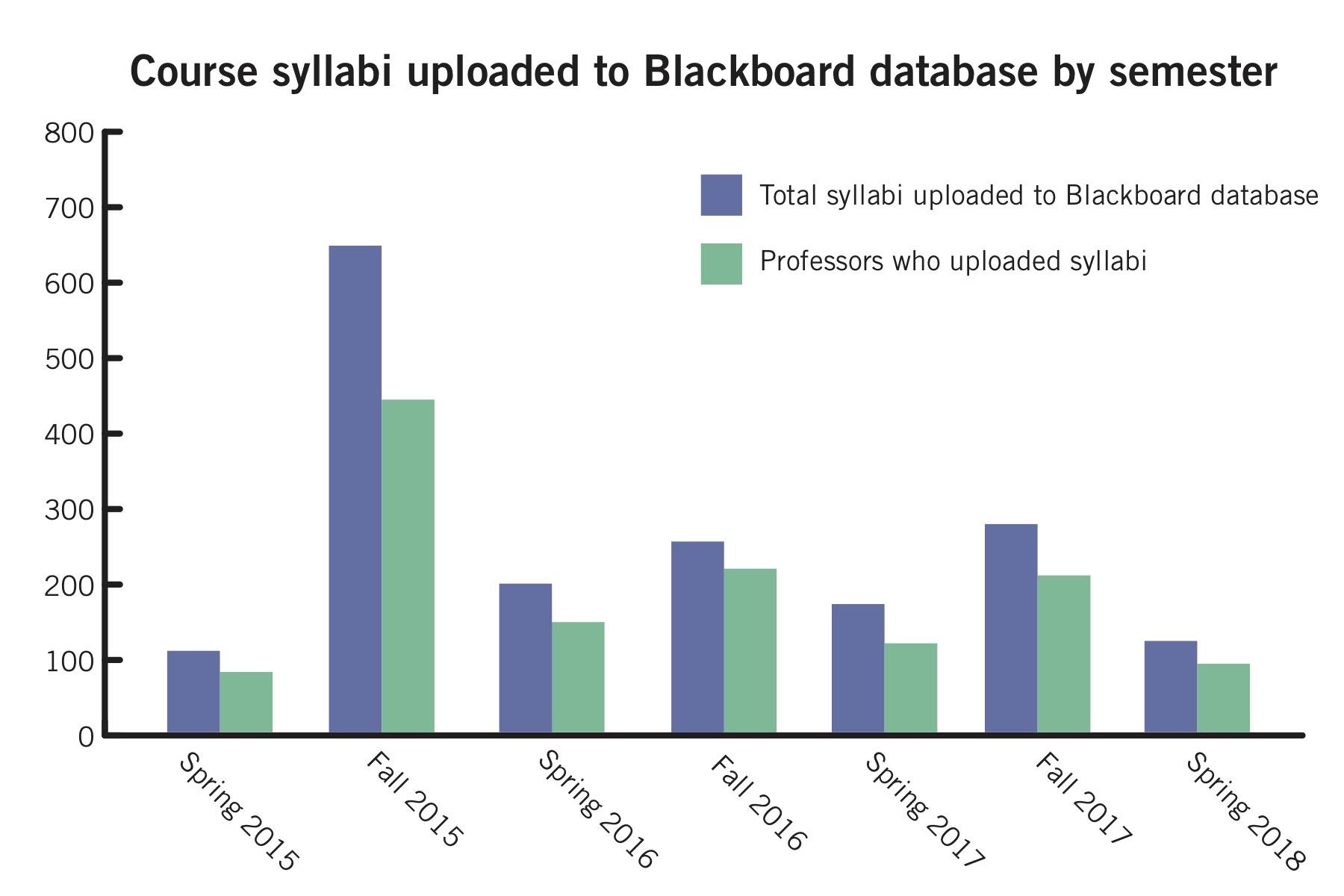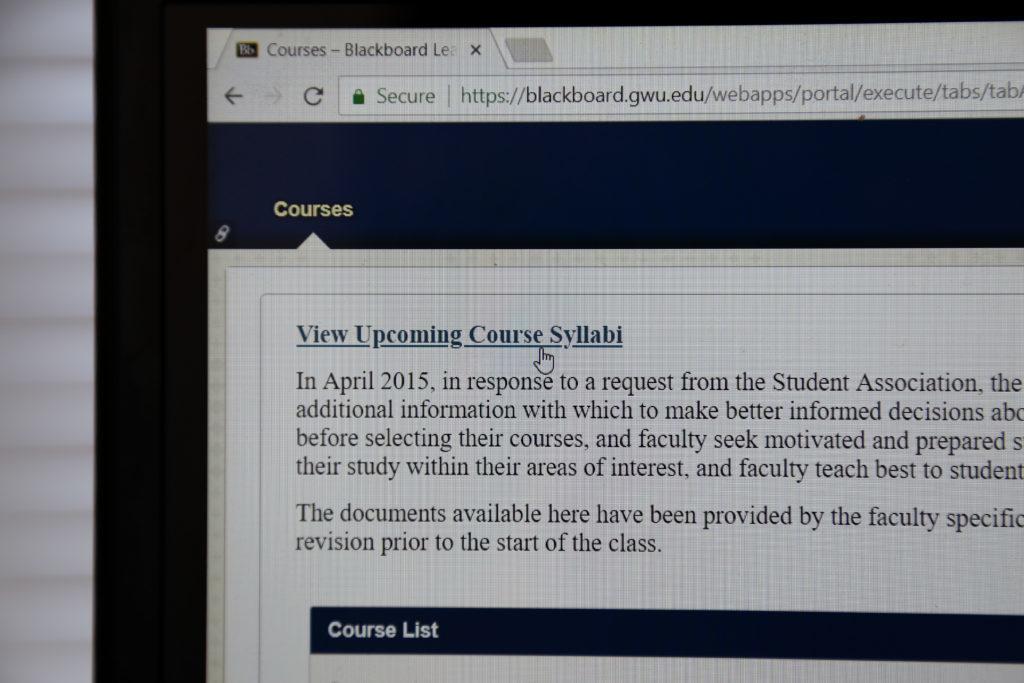Students will soon have access to thousands of course syllabi on Blackboard ahead of course registration.
Officials said that in response to Student Association advocacy for an updated syllabus bank, administrators developed a new system that automatically pulls syllabi from professors’ Blackboard course pages and uploads them to a searchable database that will launch this summer. SA leaders said the change will give students clearer expectations of classes before they register and allow them to make better-informed decisions.

Emily Recko | Graphics Editor
Source: SA course syllabi proposal
“We’d be benefitting 26,000 students – which is a lot – and making sure that students are academically successful in the classroom,” Sydney Nelson, the SA’s outgoing executive vice president, said. “That’s something that’s been our goal from day one this year.”
There are currently two separate ways for faculty to upload course syllabi on Blackboard – one onto their respective course page and one onto the syllabi database – the result of an SA push in 2015. But just a fraction of faculty members upload their syllabi onto the database, and the available syllabi are often outdated – showing course syllabi dating back to 2008, Nelson said.
Nelson said faculty can opt out of the new system if they do not want their syllabus automatically uploaded, and only GW users can access the database.
“Now, we’re not asking them to go that extra step, we’re asking that this become part of their normal routine in preparing for their classes,” she said.
Geneva Henry, the dean of libraries and academic innovation, said the one-step process will make it easier for faculty to upload course syllabi onto Blackboard, and all syllabi uploaded to Blackboard will be available in the database starting this summer. She said the GW Libraries staff will advertise the new syllabus bank to faculty by incorporating information about the program during workshops and regular communication with professors.
“I am so happy that the Instructional Technology Lab has been able to assist with this student-led project to provide better course information,” she said in an email.
Deputy Provost Terry Murphy said the new course syllabi upload process is “essentially a one-step, seamless process,” and officials have no plans to track whether faculty utilize the system because “we expect that most will see the value in participating.”
Nelson said the system will hold more faculty members accountable because officials will be able to pinpoint which professors or departments aren’t making their syllabi available to students.
The Faculty Senate passed a resolution in 2014 asking that faculty upload their course syllabi in Blackboard and provide students with more information about their courses.
About 441 faculty members uploaded course syllabi following the push, and about 91 professors uploaded their course syllabi for the spring 2018 semester, Nelson said.
Nelson said students often scramble to find different courses after classes begin because they base their decision to take a course on its name, rather than its outlined schedule and expectations.
“We want them to be able to think about their interests, their learning styles, their objectives, their academic and professional goals,” she said. “All of that that should be going into your course selection decision – we want them to have the information to do that.”
SA leaders highlighted an update to the course syllabus bank as one of their spring priorities earlier this semester.
Peak Sen Chua, the SA’s outgoing president, said some academic departments, like the Trachtenberg School of Public Policy and Public Administration, have databases for professors to upload syllabi in their respective schools, but faculty have no incentive to upload syllabi because the syllabus banks aren’t maintained by academic advisers or officials.
“If you don’t make course syllabi a priority for faculty and don’t make faculty understand that this significantly burdens students, then faculty will not do so on their own accord,” he said.
He said upgrading the course syllabus bank complements other initiatives related to the academic experience SA leaders have pushed forward during their tenure. SA leaders released a report last week highlighting shortcomings in student-adviser relationships. The SA Senate also passed a resolution in March calling on the University to create online advising sessions and offer more flexible office hours for graduate students.
“If you have a strong academic experience, it’s far easier for you to succeed in the classroom and then for you to pursue other interests here at GW,” he said. “This will be huge for students.”
Meredith Roaten and Lizzie Mintz contributed reporting.




